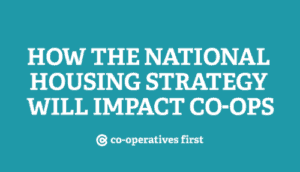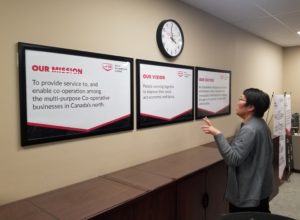Keeping the golden years golden
A handful of rural communities along Lake Manitoba make up Manitoba’s West Interlake region. Like other small communities in Western Canada, they have struggled to keep their senior citizens in place, and many have been forced to leave their families for urban centres to get the services and housing they require. But a local wealth strategy is hoping to reverse that trend.
Knowing that seniors are one of the fastest-growing populations in the nation, community leaders identified a seniors housing complex as one of their top priorities for the region.
But nothing happened. Private investors weren’t interested, the bank considered the project too risky, and the RM didn’t qualify for any government funding. No one was keen to provide financing when community leaders approached them.
With options running thin, Lana Cowling-Mason, the General Manager of Community Futures West Interlake and a leading economic development officer, knew the RM would have to do something different to see the housing project through.
“If we’re going to wait for somebody else to show up with a chequebook to solve all our problems, nothing’s going to change,” she said.
So, they decided to fund the project themselves, with a local wealth strategy — and a co-op.
Local wealth is local health
A local wealth strategy is just what it sounds like — a plan to keep wealth in the community, by investing in projects prioritized by local people. Projects could include investing in a business, providing start-up capital to a young entrepreneur, or catalyzing a project.
Unlike strategies that try to attract outside investors, local wealth strategies capture investment from the people who live there. They can also help differentiate a town or region or improve investment readiness, which increases opportunities to attract outside investment.
The returns from this type of investing are often more than financial. When you invest in a local business like a hardware store it has multiple effects. Its financial returns accrue to local investors, consumers benefit from locally provided services, local people maintain jobs, and profits stay and are spent in the community.
A local wealth strategy means coming together to create opportunities when no one else is volunteering to do it.
“When thinking of ways to promote economic growth in rural Canadian towns, economic developers and community leaders often look to outside solutions,” said Cowling-Mason. “However, we believe that you don’t have to look outside of your community to do this — you already have access to local wealth inside your community.”
Taking the plunge together
After realizing no one else would build the housing they needed, the West Interlake RM chose to do it themselves. Community leaders decided that forming an investment co-operative is the best route.
Like the Sangudo Opportunity Development Co-op in Alberta, the West Interlake Investment Co-op aims to pool investment funds for initiatives down the line.
And Cowling-Mason said the strength-in-numbers approach means that no one will go broke investing locally.
“We don’t expect people to empty their savings account and put $100,000 investments in [the co-op],” she said. “We are looking for 1,000 people who have $1,000 — people who would put a little bit of money into our region with the hopes of levering good things to happen here.”
Hopeful for the future
The investment co-op isn’t just a one-and-done initiative that will close after financing one project. It’s a long-term local wealth strategy that can fund an array of projects in the region.
“It’s a flexible tool as our needs change over time,” Cowling-Mason said. “If we do a good job setting it up, the co-op is going to be responsive to our regional needs as they change and evolve. To me, it’s a model that can serve our region for a long time to come.”
Though the complex isn’t open yet, the co-op shows small towns can think creatively and solve problems themselves. But Cowling-Mason said it requires people to take a chance on themselves.
“Money is out there in most of our communities,” she said. “But you need some of those community champions who are willing to stand up and say, ‘I’m going to put my money into this and give it a try because I believe we can do something.’”
Want to capture your hometown advantage? Check out our video series.

 Written by
Written by 


